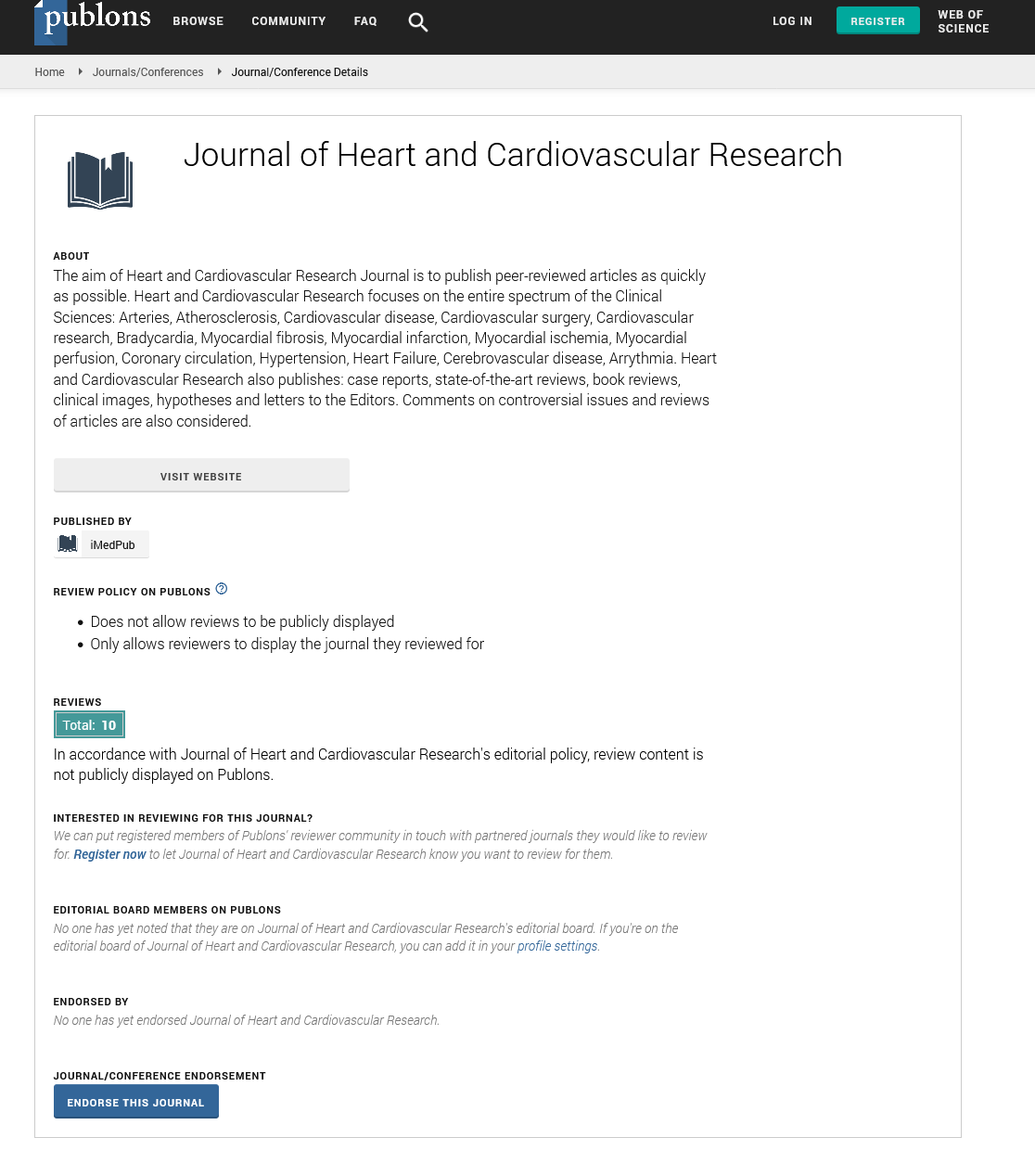ISSN : ISSN: 2576-1455
Journal of Heart and Cardiovascular Research
The stress hyperglycemia in the acute phase of a STEMI: a residual risk in the era of primary angioplasty?
22nd International Conference on New Horizons in Cardiology & Cardiologists Education
March 07-08, 2019 Berlin, Germany
Mekhdoul, Talamali, Messai and Bouame
Service of Cardiology, HCA
Posters & Accepted Abstracts: J Heart Cardiovasc Res
DOI: 10.21767/2576-1455-C1-003
Abstract
Hyperglycemia observed at the admission of a STEMI is associated with a poor prognosis. This association has been reported before and after the era of coronary revascularization in particular non-diabetic patients and would be sharper and more important in the era of primary angioplasty.
Methodology & Theoretical Orientation: Compare the impact of admission hyperglycemia in STEMI on in-hospital mortality in patients undergoing primary angioplasty to those with no reperfusion therapy.
Population & Methods: A prospective, multicenter study with a recruitment of 1222 consecutive patients without a prior history of diabetes and HbA1C <6.5% in the first 24 hours of STEMI
Findings: The average age of the population was 60.28 yrs +/- 13 yrs, the mean glycemia on admission was 1.39 g/L +/- 0.333, 56.2% of the patients benefit from early coronary reperfusion, the in-hospital mortality was 7.2%. The results showed a linear correlation between the level of glycemia on admission and in-hospital mortality, an increase of 10 mg/L of serum glucose was associated to an increased mortality of 2.6% (2.0-3.3), p<0.001. The mortality was higher in the population of patients who haven’t receive any reperfusion therapy was 12.2% versus 3.3% (p<0.001). But the impact of the glycemia on admission seems more important on the population of reperfused patient adjusted OR à 5.2 (1.5-17.5), p=0.008 versus adjusted OR 2.7 (1.3-5.38), p=0.005.
Conclusion & Significance: Hyperglycemia on admission is an independent predictive factor of short term mortality in non-diabetic patients during the acute phase of STEMI, its impact is more important in patients who benefit from a revascularisation therapy at an early stage.
Biography
Google Scholar citation report
Citations : 34
Journal of Heart and Cardiovascular Research received 34 citations as per Google Scholar report
Journal of Heart and Cardiovascular Research peer review process verified at publons
Abstracted/Indexed in
- Google Scholar
- Sherpa Romeo
- China National Knowledge Infrastructure (CNKI)
- Publons
Open Access Journals
- Aquaculture & Veterinary Science
- Chemistry & Chemical Sciences
- Clinical Sciences
- Engineering
- General Science
- Genetics & Molecular Biology
- Health Care & Nursing
- Immunology & Microbiology
- Materials Science
- Mathematics & Physics
- Medical Sciences
- Neurology & Psychiatry
- Oncology & Cancer Science
- Pharmaceutical Sciences
